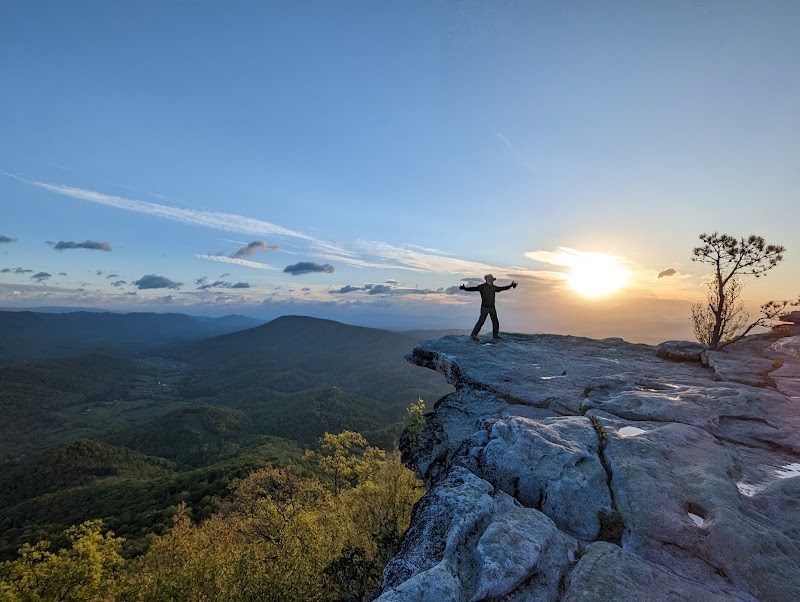
Keeping the Delaware Alive: Exploring Pennsauken’s Annual River Clean-up Adventure
Join the annual Delaware River clean-up in Pennsauken, New Jersey, where the river challenges volunteers to navigate its rugged banks and restore its natural energy. This event combines hands-on environmental action with a refreshing riverside hike, perfect for adventurers looking to make a tangible difference.
Wear Durable Footwear
Given muddy and uneven terrain along the river, waterproof boots or sturdy sneakers provide the best protection and grip.
Bring Gloves for Safety
Protect your hands from sharp debris and plants by bringing thick work gloves; local organizers may supply some, but personal gloves are recommended.
Stay Hydrated
Carry a refillable water bottle to keep hydrated, especially as spring days can quickly warm up during the clean-up efforts by the riverbank.
Plan for Weather Changes
Spring weather can be unpredictable—pack a lightweight rain jacket and dress in moisture-wicking layers to stay comfortable throughout the event.
Keeping the Delaware Alive: Exploring Pennsauken’s Annual River Clean-up Adventure
Each year, the Delaware River along Pennsauken, New Jersey, calls out for hands willing to meet its challenge—an annual clean-up event transforming a routine day into a practical adventure. Here, the river dares you to engage, its currents pushing forward, carrying debris that must be wrestled back to shore by a community of concerned adventurers. This isn’t a typical hike but a purposeful trek alongside a fiercely alive waterway wrapped in industrial edges and green pockets coming back to life.
The clean-up routes vary but generally span 3 to 5 miles tracing the riverbank’s winding course. Terrain here is an uneven mix of paved sections, dirt paths, and stretches knee-deep in forest underbrush. The elevation gain is minimal— around 50 feet—allowing for a pace driven more by the need to track down and gather trash rather than to conquer steep slopes.
Participants will encounter the river’s varied moods—the placid stretches where water laps gently, inviting reflection, and the louder, more urgent sections where currents snap at the shore. Wild grasses and deciduous trees keep a wary watch, their leaves whispering the river’s history. Beyond its surface, the Petty’s Island area offers a glimpse of local wildlife—herons that scan with steady eyes, and the occasional osprey skating overhead, all creatures intimately tied to the river’s fate.
Preparation is key to turning this event into a meaningful outdoor experience. Dress for weather and ground: waterproof boots or sturdy sneakers are a must to navigate muddy banks and slippery logs. Gloves protect against sharp litter, while a refillable water bottle ensures consistent hydration under spring or summer sun. Timed annually in mid-spring, the event takes advantage of temperate days when the river is lively but not overwhelming.
Take note: the clean-up demands awareness and respect. The river exposes its rougher edges—muddy trails, unexpected debris sites, and sometimes strong winds. Adopting a steady, measured pace with colleagues ensures safety and camaraderie. Every bag collected is a step toward revitalizing the waterfront’s vibrant potential.
Whether you’re a local or passing through Philadelphia’s outskirts, this clean-up offers a rare chance to engage directly with the environment that shapes the region. It’s a purposeful journey, one that blends outdoor activity with community action, making every step count toward preserving the Delaware’s relentless pulse.
Nearby Trips
All Adventures
Boat Charters
Water Activities
Adventures near Pennsauken, New Jersey
Discover the unique and memorable adventures that make Pennsauken, New Jersey special.
Frequently Asked Questions
Where exactly does the clean-up event take place?
The event primarily follows sections of the Delaware River shoreline around Pennsauken, focusing on industrial edges turning greener alongside public park access points and pet-friendly areas near Petty’s Island.
Is prior experience necessary to join the clean-up?
No prior experience is needed. Volunteers are guided on safe clean-up practices, and the event welcomes all fitness levels willing to contribute.
Are tools provided for picking up trash?
Basic tools like grabbers and trash bags are typically supplied by event organizers, but bringing your own gloves and sturdy footwear is encouraged.
Can families with children participate?
Yes, families are welcome, though children should be supervised closely due to uneven terrain and discarded debris.
What local wildlife might I see during the event?
Look for great blue herons, osprey, and river otters. Springtime is especially active for migratory birds and blooming riverbank plants.
Are there other community events tied to the clean-up?
Often, the clean-up event includes educational talks about river conservation and workshops on reducing plastic waste at home.
Recommended Gear
Waterproof Hiking Boots
Keeps feet dry and provides traction across muddy and slippery ground along the river.
Work Gloves
Protects hands from sharp litter and rough vegetation during clean-up efforts.
Refillable Water Bottle
Staying hydrated is crucial, especially during physical activity on warmer days.
Lightweight Rain Jacket
Weather can turn quickly; a rain jacket helps you stay comfortable through occasional spring showers.
Local Insights
Hidden Gems
- "Quiet observation decks near Petty’s Island provide unexpected views of herons in nesting season."
- "Small shaded groves along the trail where occasional wild ginger and spicebush bloom."
Wildlife
- "River otters, once scarce in the area, have made a modest comeback following conservation efforts."
- "Migratory birds such as the bald eagle may be spotted in early spring."
History
"The Delaware River has long been vital to regional industry and transport; these clean-ups honor both its economic past and ecological future, engaging communities in renewal."
